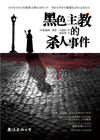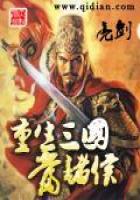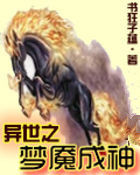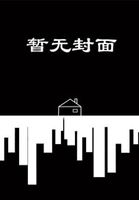Chapter1 Delirium
Claude Frollo was no longer in Notre-Dame when his adopted son so abruptly cut the fatal web in which the archdeacon and the gypsy were entangled. On returning to the sacristy he had torn off his alb, cope, and stole, had flung all into the hands of the stupefied beadle, had made his escape through the private door of the cloister, had ordered a boatman of the Terrain to transport him to the left bank of the Seine, and had plunged into the hilly streets of the University, not knowing whither he was going, encountering at every step groups of men and women who were hurrying joyously towards the Pont Saint-Michel, in the hope of still arriving in time to see the witch hung there, —pale, wild, more troubled, more blind and more fierce than a night bird let loose and pursued by a troop of children in broad daylight.He no longer knew where he was, what he thought, or whether he were dreaming.He went forward, walking, running, taking any street at haphazard, making no choice, only urged ever onward away from the Grève, the horrible Grève, which he felt confusedly, to be behind him.
In this manner he skirted Mount Sainte-Geneviève, and finally emerged from the town by the Porte Saint-Victor.He continued his flight as long as he could see, when he turned round, the turreted enclosure of the University, and the rare houses of the suburb; but, when, at length, a rise of ground had completely concealed from him that odious Paris, when he could believe himself to be a hundred leagues distant from it, in the fields, in the desert, he halted, and it seemed to him that he breathed more freely.
Then frightful ideas thronged his mind. Once more he could see clearly into his soul, and he shuddered.He thought of that unhappy girl who had destroyed him, and whom he had destroyed.He cast a haggard eye over the double, tortuous way which fate had caused their two destinies to pursue up to their point of intersection, where it had dashed them against each other without mercy.He meditated on the folly of eternal vows, on the vanity of chastity, of science, of religion, of virtue, on the uselessness of God.He plunged to his heart's content in evil thoughts, and in proportion as he sank deeper, he felt a Satanic laugh burst forth within him.
And as he thus sifted his soul to the bottom, when he perceived how large a space nature had prepared there for the passions, he sneered still more bitterly.He stirred up in the depths of his heart all his hatred, all his malevolence; and, with the cold glance of a physician who examines a patient, he recognized the fact that this malevolence was nothing but vitiated love; that love, that source of every virtue in man, turned to horrible things in the heart of a priest, and that a man constituted like himself, in making himself a priest, made himself a demon. Then he laughed frightfully, and suddenly became pale again, when he considered the most sinister side of his fatal passion, of that corrosive, venomous malignant, implacable love, which had ended only in the gibbet for one of them and in hell for the other; condemnation for her, damnation for him.
And then his laughter came again, when he reflected that Phoebus was alive; that after all, the captain lived, was gay and happy, had handsomer doublets than ever, and a new mistress whom he was conducting to see the old one hanged. His sneer redoubled its bitterness when he reflected that out of the living beings whose death he had desired, the gypsy, the only creature whom he did not hate, was the only one who had not escaped him.
Then from the captain, his thought passed to the people, and there came to him a jealousy of an unprecedented sort. He reflected that the people also, the entire populace, had had before their eyes the woman whom he loved exposed almost naked.He writhed his arms with agony as he thought that the woman whose form, caught by him alone in the darkness would have been supreme happiness, had been delivered up in broad daylight at full noonday, to a whole people, clad as for a night of voluptuousness.He wept with rage over all these mysteries of love, profaned, soiled, laid bare, withered forever.He wept with rage as he pictured to himself how many impure looks had been gratified at the sight of that badly fastened shift, and that this beautiful girl, this virgin lily, this cup of modesty and delight, to which he would have dared to place his lips only trembling, had just been transformed into a sort of public bowl, whereat the vilest populace of Paris, thieves, beggars, lackeys, had come to quaff in common an audacious, impure, and depraved pleasure.
And when he sought to picture to himself the happiness which he might have found upon earth, if she had not been a gypsy, and if he had not been a priest, if Phoebus had not existed and if she had loved him; when he pictured to himself that a life of serenity and love would have been possible to him also, even to him; that there were at that very moment, here and there upon the earth, happy couples spending the hours in sweet converse beneath orange trees, on the banks of brooks, in the presence of a setting sun, of a starry night; and that if God had so willed, he might have formed with her one of those blessed couples, —his heart melted in tenderness and despair.
Oh!she!still she!It was this fixed idea which returned incessantly, which tortured him, which ate into his brain, and rent his vitals. He did not regret, he did not repent; all that he had done he was ready to do again; he preferred to behold her in the hands of the executioner rather than in the arms of the captain.But he suffered; he suffered so that at intervals he tore out handfuls of his hair to see whether it were not turning white.
Among other moments there came one, when it occurred to him that it was perhaps the very minute when the hideous chain which he had seen that morning, was pressing its iron noose closer about that frail and graceful neck. This thought caused the perspiration to start from every pore.
There was another moment when, while laughing diabolically at himself, he represented to himself la Esmeralda as he had seen her on that first day, lively, careless, joyous, gayly attired, dancing, winged, harmonious, and la Esmeralda of the last day, in her scanty shift, with a rope about her neck, mounting slowly with her bare feet, the angular ladder of the gallows; he figured to himself this double picture in such a manner. that he gave vent to a terrible cry.
While this hurricane of despair overturned, broke, tore up, bent, uprooted everything in his soul, he gazed at nature around him. At his feet, some chickens were searching the thickets and pecking, enamelled beetles ran about in the sun; overhead, some groups of dappled gray clouds were floating across the blue sky; on the horizon, the spire of the Abbey Saint-Victor pierced the ridge of the hill with its slate obelisk; and the miller of the Copeaue hillock was whistling as he watched the laborious wings of his mill turning.All this active, organized, tranquil life, recurring around him under a thousand forms, hurt him.He resumed his flight.
He sped thus across the fields until evening. This flight from nature, life, himself, man, God, everything, lasted all day long.Sometimes he flung himself face downward on the, earth, and tore up the young blades of wheat with his nails.Sometimes he halted in the deserted street of a village, and his thoughts were so intolerable that he grasped his head in both hands and tried to tear it from his shoulders in order to dash it upon the pavement.
Towards the hour of sunset, he examined himself again, and found himself nearly mad. The tempest which had raged within him ever since the instant when he had lost the hope and the will to save the gypsy, —that tempest had not left in his conscience a single healthy idea, a single thought which maintained its upright position.His reason lay there almost entirely destroyed.There remained but two distinct images in his mind, la Esmeralda and the gallows; all the rest was blank.Those two images united, presented to him a frightful group; and the more he concentrated what attention and thought was left to him, the more he beheld them grow, in accordance with a fantastic progression, the one in grace, in charm, in beauty, in light, the other in deformity and horror; so that at last la Esmeralda appeared to him like a star, the gibbet like an enormous, fleshless arm.
One remarkable fact is, that during the whole of this torture, the idea of dying did not seriously occur to him. The wretch was made so.He clung to life.Perhaps he really saw hell beyond it.
Meanwhile, the day continued to decline. The living being which still existed in him reflected vaguely on retracing its steps.He believed himself to be far away from Paris; on taking his bearings, he perceived that he had only circled the enclosure of the University.The spire of Saint-Sulpice, and the three lofty needles of Saint Germain-des-Prés, rose above the horizon on his right.He turned his steps in that direction.When he heard the brisk challenge of the men-at-arms of the abbey, around the crenelated, circumscribing wall of Saint-Germain, he turned aside, took a path which presented itself between the abbey and the lazar-house of the bourg, and at the expiration of a few minutes found himself on the verge of the Préaux-Clercs.
This meadow was celebrated by reason of the brawls which went on there night and day; it was the hydra of the poor monks of Saint-Germain:quod mouachis Sancti-Germaini pratensis hydra fuit, clericis nova semper dissidiorum capita suscitantibus.The archdeacon was afraid of meeting some one there; he feared every human countenance; he had just avoided the University and the Bourg Saint-Germain; he wished to re-enter the streets as late as possible.He skirted the Pré-aux-clercs, took the deserted path which separated it from the Dieu-Neuf, and at last reached the water's edge.There Dom Claude found a boatman, who, for a few farthings in Parisian coinage, rowed him up the Seine as far as the point of the city, and landed him on that tongue of abandoned land where the reader has already beheld Gringoire dreaming, and which was prolonged beyond the king's gardens, parallel to the Ile du Passeur-aux-Vaches.
The monotonous rocking of the boat and the ripple of the water had, in some sort, quieted the unhappy Claude. When the boatman had taken his departure, he remained standing stupidly on the strand, staring straight before him and perceiving objects only through magnifying oscillations which rendered everything a sort of phantasmagoria to him.The fatigue of a great grief not infrequently produces this effect on the mind.
The sun had set behind the lofty Tour-de-Nesle.It was the twilight hour.The sky was white, the water of the river was white.Between these two white expanses, the left bank of the Seine, on which his eyes were fixed, projected its gloomy mass and, rendered ever thinner and thinner by perspective, it plunged into the gloom of the horizon like a black spire.It was loaded with houses, of which only the obscure outline could be distinguished, sharply brought out in shadows against the light background of the sky and the water.Here and there windows began to gleam, like the holes in a brazier.That immense black obelisk thus isolated between the two white expanses of the sky and the river, which was very broad at this point, produced upon Dom Claude a singular effect, comparable to that which would be experienced by a man who, reclining on his back at the foot of the tower of Strasburg, should gaze at the enormous spire plunging into the shadows of the twilight above his head.Only, in this case, it was Claude who was erect and the obelisk which was lying down; but, as the river, reflecting the sky, prolonged the abyss below him, the immense promontory seemed to be as boldly launched into space as any cathedral spire; and the impression was the same.This impression had even one stronger and more profound point about it, that it was indeed the tower of Strasbourg, but the tower of Strasbourg two leagues in height; something unheard of, gigantic, immeasurable; an edifice such as no human eye has ever seen; a tower of Babel.The chimneys of the houses, the battlements of the walls, the faceted gables of the roofs, the spire of the Augustines, the tower of Nesle, all these projections which broke the profile of the colossal obelisk added to the illusion by displaying in eccentric fashion to the eye the indentations of a luxuriant and fantastic sculpture.
Claude, in the state of hallucination in which he found himself, believed that he saw, that he saw with his actual eyes, the bell tower of hell; the thousand lights scattered over the whole height of the terrible tower seemed to him so many porches of the immense interior furnace; the voices and noises which escaped from it seemed so many shrieks, so many death groans. Then he became alarmed, he put his hands on his ears that he might no longer hear, turned his back that he might no longer see, and fled from the frightful vision with hasty strides.
But the vision was in himself.
When he re-entered the streets, the passers-by elbowing each other by the light of the shop-fronts, produced upon him the effect of a constant going and coming of spectres about him. There were strange noises in his ears; extraordinary fancies disturbed his brain.He saw neither houses, nor pavements, nor chariots, nor men and women, but a chaos of indeterminate objects whose edges melted into each other.At the corner of the Rue de la Barillerie, there was a grocer's shop whose porch was garnished all about, according to immemorial custom, with hoops of tin from which hung a circle of wooden candles, which came in contact with each other in the wind, and rattled like castanets.He thought he heard a cluster of skeletons at Montfaucon clashing together in the gloom.
“Oh!”he muttered, “the night breeze dashes them against each other, and mingles the noise of their chains with the rattle of their bones!Perhaps she is there among them!”
In his state of frenzy, he knew not whither he was going.After a few strides he found himself on the Pont Saint-Michel.There was a light in the window of a ground-floor room; he approached.Through a cracked window he beheld a mean chamber which recalled some confused memory to his mind.In that room, badly lighted by a meagre lamp, there was a fresh, light-haired young man, with a merry face, who amid loud bursts of laughter was embracing a very audaciously attired young girl; and near the lamp sat an old crone spinning and singing in a quavering voice.As the young man did not laugh constantly, fragments of the old woman's ditty reached the priest; it was something unintelligible yet frightful, —
“Grève, aboie, Grève, grouille!
File, file, ma quenouille,
File sa corde au bourreau,
Qui siffle dans le pre(au),
Grève, aboie, Grève, grouille!
“La belle corde de chanvre!
Semez d'Issy jusqu'?Vanvre
Du chanvre et non pas du blé.
Le voleur n'a pas volé
La belle corde de chanvre.
“Grève, grouille, Grève, aboye!
Pour voir la fille de joie,
Prendre au gibet chassieux,
Lesfenêtres sont des yeux.
Grève, grouille, Grève, aboye!”
Thereupon the young man laughed and caressed the wench. The crone was la Falourdel; the girl was a courtesan; the young man was his brother Jehan.
He continued to gaze. That spectacle was as good as any other.
He saw Jehan go to a window at the end of the room, open it, cast a glance on the quay, where in the distance blazed a thousand lighted casements, and he heard him say as he closed the sash, —
“'Pon my soul!How dark it is; the people are lighting their candles, and the good God his stars.”
Then Jehan came back to the hag, smashed a bottle standing on the table, exclaiming, —
“Already empty, cor-boeuf!and I have no more money!Isabeau, my dear, I shall not be satisfied with Jupiter until he has changed your two white nipples into two black bottles, where I may suck wine of Beaune day and night.”
This fine pleasantry made the courtesan laugh, and Jehan left the room.
Dom Claude had barely time to fling himself on the ground in order that he might not be met, stared in the face and recognized by his brother. Luckily, the street was dark, and the scholar was tipsy.Nevertheless, he caught sight of the archdeacon prone upon the earth in the mud.
“Oh!oh!”said he; “here's a fellow who has been leading a jolly life, to-day.”
He stirred up Dom Claude with his foot, and the latter held his breath.
“Dead drunk, ”resumed Jehan.“Come, he's full. A regular leech detached from a hogshead.He's bald, ”he added, bending down, “'tis an old man!Fortunate senex!”
Then Dom Claude heard him retreat, saying, —
“'Tis all the same, reason is a fine thing, and my brother the archdeacon is very happy in that he is wise and has money.”
Then the archdeacon rose to his feet, and ran without halting, towards Notre-Dame, whose enormous towers he beheld rising above the houses through the gloom.
At the instant when he arrived, panting, on the Place du Parvis, he shrank back and dared not raise his eyes to the fatal edifice.
“Oh!”he said, in a low voice, “is it really true that such a thing took place here, to-day, this very morning?”
Still, he ventured to glance at the church. The front was sombre; the sky behind was glittering with stars.The crescent of the moon, in her flight upward from the horizon, had paused at the moment, on the summit of the light hand tower, and seemed to have perched itself, like a luminous bird, on the edge of the balustrade, cut out in black trefoils.
The cloister door was shut; but the archdeacon always carried with him the key of the tower in which his laboratory was situated. He made use of it to enter the church.
In the church he found the gloom and silence of a cavern.By the deep shadows which fell in broad sheets from all directions, he recognized the fact that the hangings for the ceremony of the morning had not yet been removed.The great silver cross shone from the depths of the gloom, powdered with some sparkling points, like the milky way of that sepulchral night.The long windows of the choir showed the upper extremities of their arches above the black draperies, and their painted panes, traversed by a ray of moonlight had no longer any hues but the doubtful colors of night, a sort of violet, white and blue, whose tint is found only on the faces of the dead. The archdeacon, on perceiving these wan spots all around the choir, thought he beheld the mitres of damned bishops.He shut his eyes, and when he opened them again, he thought they were a circle of pale visages gazing at him.
He started to flee across the church. Then it seemed to him that the church also was shaking, moving, becoming endued with animation, that it was alive; that each of the great columns was turning into an enormous paw, which was beating the earth with its big stone spatula, and that the gigantic cathedral was no longer anything but a sort of prodigious elephant, which was breathing and marching with its pillars for feet, its two towers for trunks and the immense black cloth for its housings.
This fever or madness had reached such a degree of intensity that the external world was no longer anything more for the unhappy man than a sort of Apocalypse, -visible, palpable, terrible.
For one moment, he was relieved. As he plunged into the side aisles, he perceived a reddish light behind a cluster of pillars.He ran towards it as to a star.It was the poor lamp which lighted the public breviary of Notre-Dame night and day, beneath its iron grating.He flung himself eagerly upon the holy book in the hope of finding some consolation, or some encouragement there.The hook lay open at this passage of Job, over which his staring eye glanced, —
“And a spirit passed before my face, and I heard a small voice, and the hair of my flesh stood up.”
On reading these gloomy words, he felt that which a blind man feels when he feels himself pricked by the staff which he has picked up. His knees gave way beneath him, and he sank upon the pavement, thinking of her who had died that day.He felt so many monstrous vapors pass and discharge themselves in his brain, that it seemed to him that his head had become one of the chimneys of hell.
It would appear that he remained a long time in this attitude, no longer thinking, overwhelmed and passive beneath the hand of the demon.At length some strength returned to him; it occurred to him to take refuge in his tower beside his faithful Quasimodo.He rose; and, as he was afraid, he took the lamp from the breviary to light his way. It was a sacrilege; but he had got beyond heeding such a trifle now.
He slowly climbed the stairs of the towers, filled with a secret fright which must have been communicated to the rare passers-by in the Place du Parvis by the mysterious light of his lamp, mounting so late from loophole to loophole of the bell tower.
All at once, he felt a freshness on his face, and found himself at the door of the highest gallery. The air was cold; the sky was filled with hurrying clouds, whose large, white flakes drifted one upon another like the breaking up of river ice after the winter.The crescent of the moon, stranded in the midst of the clouds, seemed a celestial vessel caught in the ice-cakes of the air.
He lowered his gaze, and contemplated for a moment, through the railing of slender columns which unites the two towers, far away, through a gauze of mists and smoke, the silent throng of the roofs of Paris, pointed, innumerable, crowded and small like the waves of a tranquil sea on a sum-mer night.
The moon cast a feeble ray, which imparted to earth and heaven an ashy hue.
At that moment the clock raised its shrill, cracked voice. Midnight rang out.The priest thought of midday; twelve o'clock had come back again.
“Oh!”he said in a very low tone, “she must be cold now.”
All at once, a gust of wind extinguished his lamp, and almost at the same instant, he beheld a shade, a whiteness, a form, a woman, appear from the opposite angle of the tower. He started.Beside this woman was a little goat, which mingled its bleat with the last bleat of the clock.
He had strength enough to look. It was she.
She was pale, she was gloomy. Her hair fell over her shoulders as in the morning; but there was no longer a rope on her neck, her hands were no longer bound; she was free, she was dead.
She was dressed in white and had a white veil on her head.
She came towards him, slowly, with her gaze fixed on the sky.The supernatural goat followed her.He felt as though made of stone and too heavy to flee.At every step which she took in advance, he took one backwards, and that was all.In this way he retreated once more beneath the gloomy arch of the stairway. He was chilled by the thought that she might enter there also; had she done so, he would have died of terror.
She did arrive, in fact, in front of the door to the stairway, and paused there for several minutes, stared intently into the darkness, but without appearing to see the priest, and passed on. She seemed taller to him than when she had been alive; he saw the moon through her white robe; he heard her breath.
When she had passed on, he began to descend the staircase again, with the slowness which he had observed in the spectre, believing himself to be a spectre too, haggard, with hair on end, his extinguished lamp still in his hand; and as he descended the spiral steps, he distinctly heard in his ear a voice laughing and repeating, —
“A spirit passed before my face, and I heard a small voice, and the hair of my flesh stood up.”















